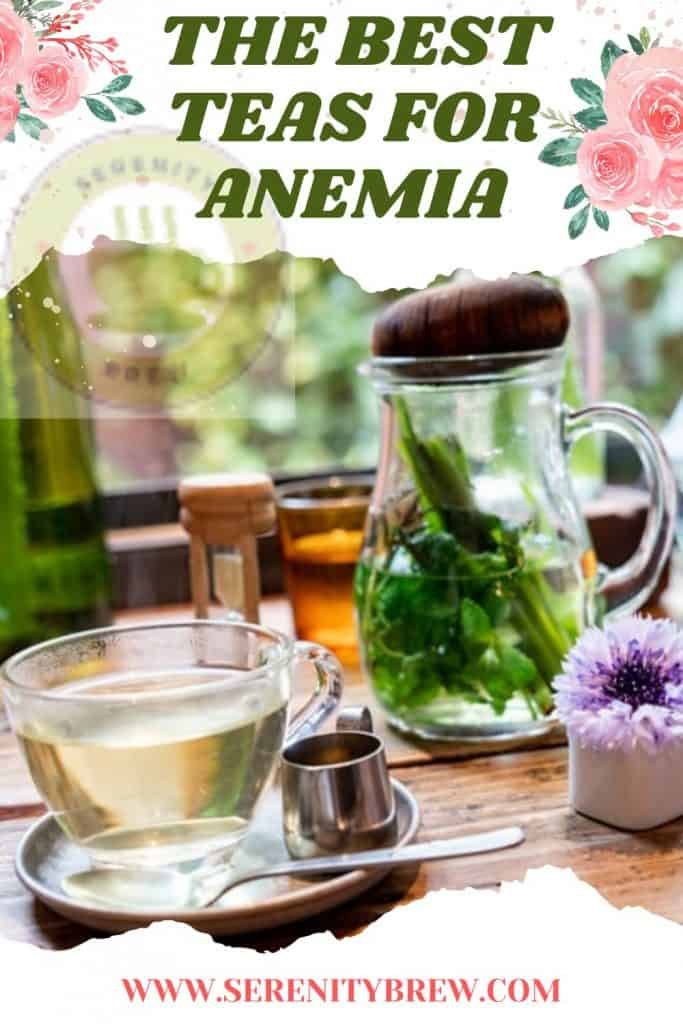
Natural medicine maintains that some herbs help treat anemia, thanks to their contribution of iron or because they can help iron to be better absorbed. Now, is there scientific evidence to support these theories?
The truth is that there is some research that has pointed out the antianemic potential of some infusions, although many of them are consumed, honestly, without a solid scientific basis. Let’s discover them.
What is anemia?
Anemia is a decrease in the presence of red blood cells or hemoglobin levels. It is worth clarifying that the main function of red blood cells is to transport oxygen to each of the body’s tissues.
Despite what many of us believe, anemia is not a disease in itself but a manifestation of other diseases that may or may not be serious. It is usually associated with iron deficiency, but it can also be generated due to a deficient production of red blood cells, their loss through hemorrhage or a maturation disorder due to vitamin B12 deficiencies. or folates, for example.
When talking about anemia it is important to determine, firstly, what is the cause of it and, secondly, if it is suffered acutely or chronically.
Among the most common symptoms are tiredness, which can become extreme in the presence of intense anemia, pale skin color, headache, tachycardia, capillary or nail weakness, and respiratory difficulties.
Faced with the suspicion that you may be suffering from anemia, you should go to your doctor to obtain a timely diagnosis and treatment. Keep in mind that the infusions that will be presented below can relieve symptoms but should only be used as an adjuvant.
Infusions for anemia

As we have previously pointed out, anemia is a symptom that can point to a deficit of certain vitamins and/or minerals. For this reason, consuming infusions that provide these components or contribute to their better absorption can help alleviate the presence of anemia.
On the other hand, all the infusions on this list have a basic concentration of tannic acid, a substance that acts by hindering the absorption of iron. Remember that iron deficiency is the cause of iron deficiency anemia. Now yes, let’s discover together which are the best infusions for anemia.
Nettle infusion
Nettle is a plant with a bad reputation because its contact with the skin can cause hives. However, alternative medicine has been using it for hundreds of years to treat all kinds of ailments, including diabetes, hypertension, asthma and anemia. In fact, different studies have indicated that it would be an effective natural remedy, at least in the case of anemia. Of course, it is best to consult your doctor about it.
Rooibos
Rooibos is known as “tea without theine” although, in reality, it is not a tea but a tisane. It’s worth noting that teas come from the Camellia sinensis plant , while rooibos comes from the South African shrub Aspalathus linearis.
By having a lower amount of tannins than tea, rooibos would not affect the absorption of iron and, therefore, would not collaborate in the development of iron deficiency anemia.
Dandelion infusion
Who has not ever blown on a dandelion? It is a traditional children’s game that we have all played at some point. Though considered a weed by gardeners, Ayurvedic medicine has found all kinds of uses for this herb.
Researchers have proven that it has anti-inflammatory and diuretic properties and also provides vitamins A, B, C, D and minerals such as iron, sodium and potassium. The consumption of this infusion to pregnant women to prevent them from suffering from the common (and feared) gestational anemia.
Parsley infusion
This infusion is unusual, we know, but we love it because it is prepared with a common ingredient in all households. Who does not have parsley at home? In fact, many of you may have fresh parsley, if you have a small urban garden.
Parsley has been used for many years to combat anemia. Its vitamin C content is supposed to help the absorption of iron, a mineral that it also provides. However, we have not found specific research in this regard, although we did find one that mentions that parsley could be used to combat functional anemia caused by medications.
Fennel infusion
The case of fennel is similar to that of parsley: by providing vitamin C, it helps iron to be absorbed correctly. However, there are currently no specific studies on the action of fennel on anemia.
Alfalfa infusion
Alfalfa provides iron and vitamin B12. On the other hand, a 2018 clinical trial concluded that the group that had consumed alfalfa on a regular basis had improved hemoglobin levels relative to the control group.
Horsetail infusion
Horsetail infusion is widely used by experts in natural medicine to treat cystitis and inflammatory conditions such as rheumatism or arthritis. Additionally, it is believed to have a revitalizing effect promoted by its iron content.
Sage infusion
Taking sage tea daily is believed to help promote the formation of red blood cells. Although there are no specific studies on the infusion, its extract is known to serve this purpose.
Note: if you regularly consume green tea or black tea and think you suffer from anemia, stop taking it as some studies have indicated that there would be an association between them, due to their tannin content. Check with your doctor about it.
As you can see, incorporating any of these infusions into your routine could be a good idea, even if you don’t suffer from anemia, since they would help prevent this condition. If you have been diagnosed with anemia, consult your doctor about the possibility of accompanying your treatment with infusions.
